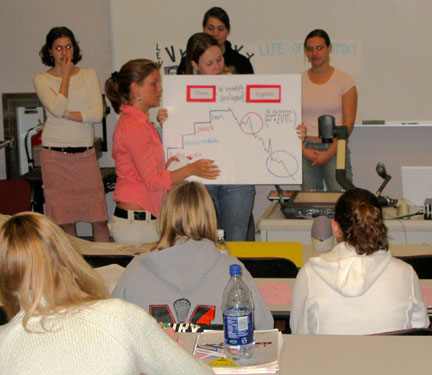Working Title: The Role of Voice in the Pursuit of Just Schooling
Working Foci:
lynn voice of the physically disabled
katie voices of parents of children with disabilities in policy making
kelly multiple voices within publication
how does “voice” express itself
using voice in educational research
penny voice, schooling, and middle school children
academic engagement of middle school students
go to the learners, are you engaged, how are you engaged
cr interrogating career: consideration of personal voice
shared meanings, shared spaces, the transactional effects of sharing personal voice
moderator and discussant
Ricardo Johnson, III
I’ve been thinking about how we might put our syposium together (as organizer). Several years ago, I saw a symposium that I really liked. Rather than have each person go through their papers “in order,” each person in turn went through a section of their papers a section at a time. That way, the audience saw a broader view of the approach as well as a sharing of the deeper content. This would also give our moderator and discussant an very useful introductory and commenting role. Plus, he wouldn’t have to figure it all out – some of the order and content would be predetermined.
What if we approached each of our papers in this fashion, the trick being could we all agree that we could more or less address the following sections… .
overview – where did the idea for the research come from, where does the research fit within my professional ouvre
rationale – why did I want to focus on the issue of “voice”? why I chose my particular approach to “voice” (method)
the voices themselves – who were they, how did I listen, what did i collect, how did I analyze
observations/findings – what were the outcomes/results/observations/shared realities of my work
What do you think? Could each of us organize our papers in this way?
You can use the blog to comment. First time you comment, you’ll have to register a TypeKey ID and password. They can be any ID and password. After that, you can comment at will!
